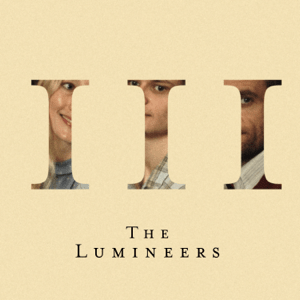
Bonjour. I got you something from Goa – a circular! Yes, a circular saying that there is no need to take copyright permission for the performance of musical works at religious ceremonies/weddings/social festivals! Unsurprisingly, the same has been challenged as well, by Phonographic Performance Limited and Sonotek Cassettes Company. This brief post discusses the key elements of the current circular and underscores the previous discussion on the issue.
Goan Circular’s Sensitization of Police …
While I couldn’t find the official text on the website of the Goa Home Department, as reported by the Herald Goa, the circular relies on the 2023 DPIIT notification. Two points of this circular particularly piqued my interest.
Firstly, it connects the issue to the economic and tourism activities in the state. Relevantly, it states that “Insistence upon such permissions/NOCs from copyright societies is in violation of section 52(1)(za) of Copyright Act 1957 and is adversely affecting not only the citizens but also the economic/tourism activities in the State.” I wonder what and how economic/tourism activities are adversely affected in the state. Does it mean that people who chose Goa as the destination for the wedding will be disincentivized, making Goa face economic or/and tourism loss? Maybe yes. What else? Interestingly, this opens up a question regarding the scope of the definition of “other social festivities associated with a marriage” under Section 52(1)(za), particularly considering Goa’s popularity as a destination for such events.
Secondly, the circular emphasizes the importance of raising awareness among the police. ‘Tis an important point, given the general fear of police among the common public. What makes it more interesting is that generally, the Police are expected to stop copyright infringement, often raising chances of harassment of innocent parties, especially considering the cognizable and non-bailable nature of copyright infringement. Therefore, this sensitization move deserves to be applauded. Interestingly, the circular also makes a mention of “field units” being instructed to take strict action against any hotel or copyright society making illegal demands for royalties or fees. Here’s a hiccup, however.
This “field units” idea is vague in its nature and scope. From the circular’s text, it appears that the field unit would make sure that people aren’t forced to pay for something that is already permitted under Section 52(1)(za). Among other things, such a task would involve checking marriage places, etc., and detecting wrongdoing by copyright owners. All in all, such a task would require some intelligence and groundwork from the field units. Otherwise, how would they know which marriage party’s interest/right under Section 52(1)(za) is being infracted in Goa? Hence, the modus operandi of the field units becomes important and carries larger implications. Furthermore, even if the field unit identifies wrongdoing, the question arises: how can they legally intervene? Similarly, assuming a wedding party (who is being harassed) contacts a field unit, can the police handle those claims and direct them to take it to court? How? As I know, the Copyright Act of 1957 does not provide a specific provision for such circumstances empowering/directing police. (Please correct me if I’m mistaken) While the aggrieved party can potentially invoke Section 60 to counter groundless threats of legal action for alleged infringement, the relevance of the field unit may not be necessary in such cases. (Sidenote: Do you know that Section 60 too is a tricky terrain?).
For readers’ quick reference, let me now briefly highlight the previous discussion on the blog because …
Talking about such circulars feels like deja vu. No?
The issue has come up several times and was covered on the blog. Before this circular, a notification dated 24th July 2023 was issued by the Department for Promotion of Industry and Internal Trade (DPIIT). Last year, the Police Commissionerate, of Jaipur also issued a similar circular as discussed by Gaurangi Kapoor. Earlier, we also had a notification in 2019 which was later invalidated in 2022 by the Punjab and Haryana High Court for being ultra vires. In 2022, the Delhi High Court appointed Prof. Arul Scaria as an expert on this issue in Phonographic Performance Limited vs Lookpart Exhibitions and Events Private Ltd. However, the parties later settled the dispute out of the court so no clarity came at last. (See Prof. Scaria’s full report here and Praharsh’s discussion here). Well … ‘tis just a glimpse of the long-going discussion on the topic. For more details and context, please check Reva Satish Makhija’s most recent post titillatingly titled – Wedding Bells or Warning Bells? PPL Refuses to Give an NOC to Play its Sound Recordings at Sangeet, Cocktail Party.
Like Reva and many others, I also wonder why is there even a need to issue such notifications when Section 52(1)(za) of the Copyright Act 1957 explicitly exempts “the performance of a literary, dramatic or musical work or the communication to the public of such work or of a sound recording in the course of any bona fide religious ceremony or an official ceremony held by the Central Government or the State Government or any local authority.” The provision also carries an additional explanation which reads that “For the purpose of this clause, religious ceremony including a marriage procession and other social festivities associated with a marriage.”
Well … for one, provisions with phrases like “bona fide” or “other related social festivities” etc. are often up for grabs. As Devika discussed the issue earlier, underscoring cases like Phonographic Performance Ltd. v. State of Punjab where the Court interpreted the provisions narrowly. Similarly, Anjali detailedly discussed the Delhi High Court’s problematic interpretation of the provision in Ten Events and Entertainment v. Novex Communications Pvt. Ltd. Her post is worth checking as she microscopically parses the provision, Section 52(1)(za), and presents the contrarieties in the Court’s understanding.
In sum …
While the idea of sensitization of police and the use of field units is desirable, it needs to be carefully thought through to have some real-life positive implications. Otherwise, it’s just a paper tiger. Also, who knows if this circular will be invalidated or stayed like its previous avatars (See here and here)? Nevertheless, I hope that this circular serves the desired purpose and sensitizes the Goa (and also the Indian) Police regarding the copyright law clarifying that not everything that involves copyrighted work is illegal. So the harassment of innocent parties can be prevented.
But … as my French friends would say: Qui vivra verra, loosely translating to “Time will tell.”
- SEO Powered Content & PR Distribution. Get Amplified Today.
- PlatoData.Network Vertical Generative Ai. Empower Yourself. Access Here.
- PlatoAiStream. Web3 Intelligence. Knowledge Amplified. Access Here.
- PlatoESG. Carbon, CleanTech, Energy, Environment, Solar, Waste Management. Access Here.
- PlatoHealth. Biotech and Clinical Trials Intelligence. Access Here.
- Source: https://spicyip.com/2024/03/goa-circular-permission-for-music-at-weddings-police-sensitization-anything-new-yes.html
- :has
- :is
- :not
- :where
- $UP
- 1
- 2022
- 2023
- 24th
- 60
- a
- About
- Act
- Action
- activities
- Additional
- adversely
- affected
- affecting
- against
- All
- alleged
- already
- also
- among
- an
- and
- any
- anything
- appears
- appointed
- ARE
- arises
- AS
- associated
- At
- Avatars
- awareness
- BE
- because
- becomes
- been
- before
- being
- bells
- Blog
- briefly
- but
- by
- came
- CAN
- carefully
- cases
- central
- ceremony
- CFM
- chances
- check
- checking
- chose
- circular
- circumstances
- Citizens
- claims
- clarity
- cocktail
- come
- Common
- Communication
- Communications
- company
- connects
- considering
- contacts
- context
- copyright
- copyright infringement
- correct
- Counter
- course
- Court
- Current
- dated
- definition
- Delhi
- demands
- Department
- deserves
- desired
- destination
- details
- detecting
- direct
- discussed
- discusses
- discussion
- Dispute
- do
- does
- dramatic
- Earlier
- Economic
- elements
- else
- emphasizes
- Entertainment
- especially
- etc
- Even
- events
- everything
- Exhibitions
- expected
- expert
- explanation
- explicitly
- Face
- fear
- feels
- Fees
- festivities
- field
- Find
- For
- forced
- French
- friends
- from
- full
- Full Report
- Furthermore
- General
- generally
- Give
- given
- Glimpse
- got
- Government
- groundwork
- had
- handle
- harassment
- Have
- Held
- hence
- her
- High
- Highlight
- Home
- hope
- hotel
- How
- However
- HTML
- HTTPS
- i
- idea
- identifies
- if
- Illegal
- implications
- importance
- important
- in
- Including
- Indian
- industry
- infringement
- innocent
- Intelligence
- interest
- interesting
- internal
- interpretation
- intervene
- involve
- involves
- issue
- Issued
- IT
- ITS
- jpeg
- July
- just
- Kapoor
- Key
- Know
- knows
- larger
- Last
- Last Year
- later
- Law
- Legal
- Legal Action
- legally
- let
- like
- Limited
- literary
- local
- loss
- Ltd
- make
- MAKES
- Making
- many
- max-width
- May..
- maybe
- me
- mean
- mention
- more
- most
- move
- Music
- musical
- my
- Nature
- necessary
- Need
- needs
- Nevertheless
- New
- no
- notifications
- now
- of
- official
- often
- on
- ONE
- only
- opens
- or
- Other
- Others
- otherwise
- out
- owners
- Paper
- particularly
- parties
- party
- Pay
- People
- performance
- permission
- phrases
- Places
- plato
- Plato Data Intelligence
- PlatoData
- Play
- please
- Point
- points
- Police
- popularity
- positive
- Post
- potentially
- presents
- prevented
- previous
- private
- prof
- promotion
- provide
- provision
- public
- purpose
- question
- Quick
- raising
- recent
- recording
- reference
- regarding
- related
- relevance
- relies
- report
- require
- REVA
- royalties
- same
- say
- saying
- scope
- Section
- see
- sensitization
- serves
- Settled
- several
- she
- similar
- Similarly
- So
- Social
- Society
- some
- something
- Sound
- specific
- State
- States
- stayed
- Stop
- strict
- such
- sum
- sure
- Take
- Task
- tell
- text
- that
- The
- The State
- Them
- There.
- therefore
- they
- things
- this
- those
- thought
- threats
- Through
- Tiger
- times
- titled
- to
- too
- topic
- Tourism
- trade
- tricky
- two
- Ultra
- under
- underscores
- understanding
- unit
- units
- upon
- use
- VIOLATION
- vs
- warning
- was
- we
- wedding
- weddings
- WELL
- What
- when
- which
- while
- WHO
- why
- will
- with
- wonder
- Work
- works
- worth
- would
- year
- yes
- you
- zephyrnet










